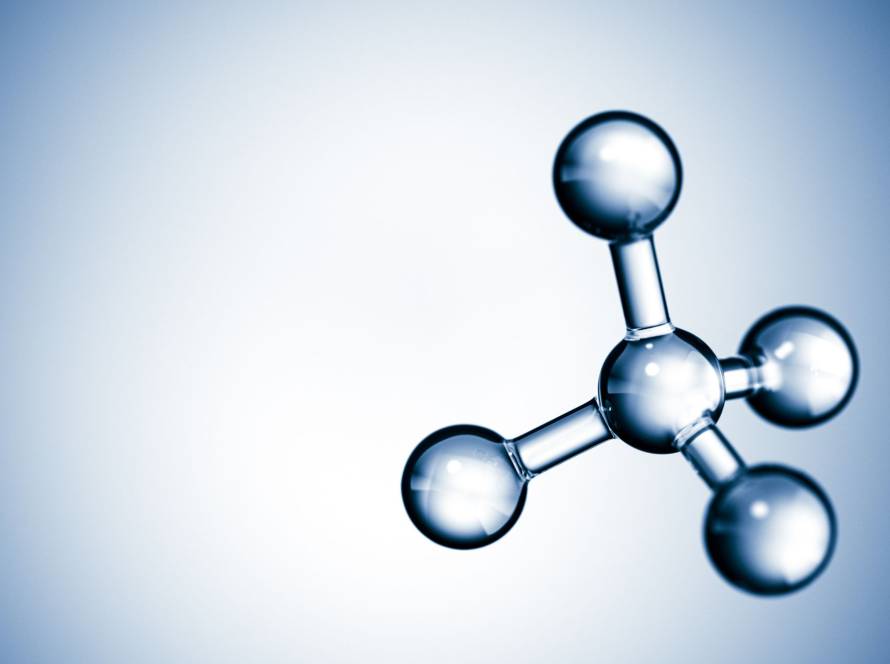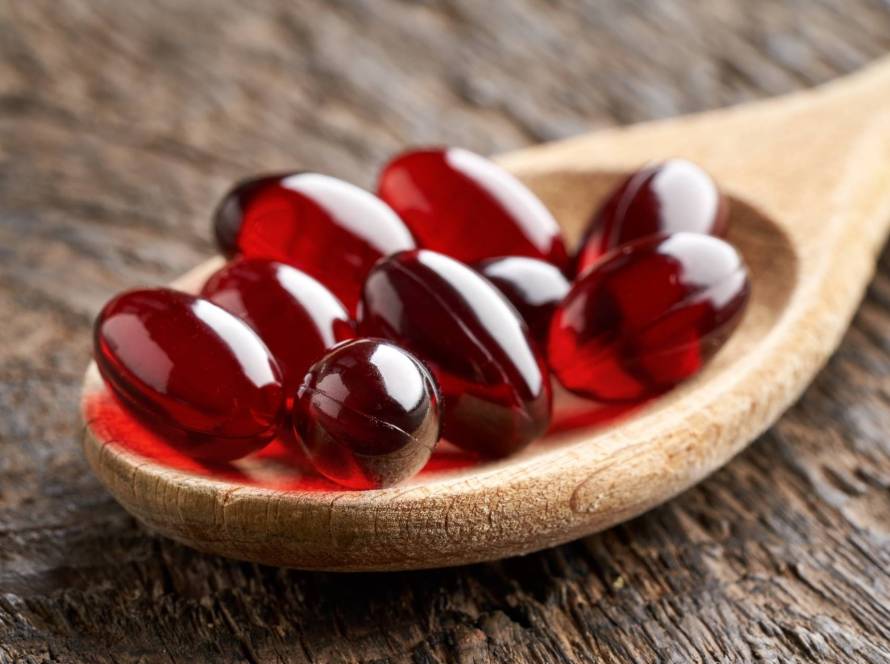The alpha-ketoglutarate (AKG) supplement shows remarkable promise in longevity research. Studies reveal it extended lifespan by approximately 50% in C. elegans and up to 23% in female Drosophila. These results excite us as researchers who help translate scientific findings into practical recommendations.
This piece dives deep into the benefits of AKG supplements, available forms, scientific evidence and potential side effects. Let’s look at clear, evidence-based insights about this promising compound that’s creating waves in longevity science.
What is AKG and why is it important?
Alpha-ketoglutarate (AKG) is a significant organic acid that connects several vital metabolic pathways in the human body. This molecule occurs naturally and helps with cellular energy production, protein synthesis and detoxification processes. Research now shows that AKG might help with longevity and healthy aging.
AKG’s role in the Krebs cycle and energy production
AKG works as a pivotal intermediate in the Krebs cycle (also called the tricarboxylic acid or TCA cycle), which produces energy in cell mitochondria. This metabolic pathway lets AKG take part in oxidative decarboxylation of isocitrate and helps convert it into succinyl-CoA. The reaction releases carbon dioxide and creates NADH, which helps make ATP through oxidative phosphorylation.
Mitochondrial AKG production depends on the state of oxidation-reduction (redox). AKG dehydrogenase activity goes up to make more NADH and ATP when energy needs increase. The pathway slows down once ATP levels reach sufficient amounts. This regulation helps AKG maintain cellular energy balance.
Functions in amino acid metabolism and detoxification
AKG does more than produce energy, it manages nitrogen metabolism by accepting amino groups in transamination reactions. This process converts AKG into glutamate and then glutamine, amino acids that help with protein synthesis, neurotransmission and cellular repair.
The detoxification process relies heavily on AKG. It neutralizes ammonia, which protein metabolism creates as a toxic byproduct. Muscle tissues benefit from this detoxifying ability during protein turnover and metabolic stress periods.
On top of that, it helps make collagen and acts as a powerful antioxidant. It reacts with hydrogen peroxide to create succinate, water and carbon dioxide. These features might explain its anti-aging effects.
Natural sources and endogenous production
Our body makes AKG through several metabolic pathways:
- Oxidative decarboxylation of isocitrate in the TCA cycle;
- Glutamate dehydrogenase activity (oxidative deamination of glutamate);
- Transamination reactions with amino acids.
We can get AKG from food sources such as:
- Red meats (beef, pork, lamb);
- Fish and seafood (salmon, tuna, shrimp);
- Dairy products (milk, yogurt, cheese);
- Various fruits and vegetables (citrus fruits, tomatoes, spinach).
AKG levels in circulation drop about 10-fold between ages 40 and 80, according to research. Young mice (2-month-old) have much higher AKG levels than middle-aged mice (10-month-old). This age-related decline has scientists looking at AKG supplements to support healthy aging.
AKG from the Krebs cycle doesn’t last long (less than 5 minutes) and struggles to pass through cell membranes. Taking supplements might work better to raise our body’s levels of this important metabolite.
What is AKG supplement made from?
AKG supplements are available in different chemical forms. Each form has unique properties that affect how well our body absorbs and uses them. Anyone interested in AKG’s potential longevity benefits should know about these supplement sources and formulations.
Common forms: Calcium AKG (Ca-AKG), Arginine AKG
We’ll find these main types of alpha ketoglutarate supplements:
Calcium AKG (Ca-AKG): this form combines AKG with calcium salt and releases AKG slowly in our body. The calcium component gives us extra bone health benefits, which makes it great for older adults. Some commercial products add extra nutrients, to cite an instance, women’s formulations often include vitamin D while men’s versions contain vitamin A.
Arginine AKG (AAKG): this compound combines AKG with L-arginine, an amino acid that helps with protein synthesis and nitrogen metabolism. Fitness enthusiasts love AAKG because it might boost nitric oxide production and improve blood flow to muscles during workouts.
Sodium AKG, ornithine AKG and magnesium AKG exist too, but researchers don’t use them much in longevity studies.
Why Ca-AKG is used in longevity research
Scientists prefer Ca-AKG in longevity studies and with good reason too. A groundbreaking study showed that 2% Ca-AKG extended lifespan in C57BL/6 mice by 9.6–12.8% and healthspan by 16.6–19.7%.
Pure AKG is a weak acid that doesn’t pass through cell membranes easily. The calcium salt form helps our body absorb it better. Our digestive system absorbs Ca-AKG slowly, which means it releases into our bloodstream gradually and works longer in our body.
How AKG supplements are absorbed and metabolized
AKG supplements help counter the natural drop in plasma AKG levels that happens as we age. These levels drop approximately 10-fold between ages 40 and 80. But getting AKG into our system isn’t simple because of its chemical makeup.
AKG stays in our body for less than 5 minutes, which means it doesn’t have much time to work in the Krebs cycle for amino acid synthesis. Pure AKG struggles to cross cell membranes. That’s why scientists developed salt forms like Ca-AKG that our body can use better and longer.
Research shows these supplements are safe. Hemodialysis patients handled doses up to 4.5 g/day and post-menopausal women took 6 g/day for 6 months with no issues. This makes AKG a reliable supplement choice.
How AKG may support healthy aging
Recent research shows that alpha-ketoglutarate (AKG) supplementation supports healthy aging through multiple pathways. Scientists have documented this metabolite’s effects thoroughly in biological systems of all types.
Reduction of systemic inflammation
AKG supports longevity primarily by reducing chronic inflammation. Studies in mice show that calcium AKG supplementation decreases levels of inflammatory cytokines. AKG also triggers production of IL-10, a potent anti-inflammatory cytokine that limits immune response. The effect appears stronger in females than males, which might explain why longevity benefits differ between sexes.
Support for mitochondrial function and energy
Mitochondrial function declines as animals age, which makes AKG deficiency worse. AKG supplementation helps restore balance by improving mitochondrial fusion and helps clear damaged mitochondria. The research revealed something interesting, treated mice moved more but used substantially less oxygen and energy with CaAKG treatment, suggesting better metabolic efficiency.
Epigenetic regulation and DNA demethylation
AKG serves as a crucial cofactor for TET enzymes in DNA demethylation processes. This action helps reverse unusual methylation patterns that build up during aging. AKG restores demethylation ability by working as a cofactor for TET enzymes when molecular oxygen and Fe(II) are present, which helps complete the oxidation of 5mC to cytosine.
Immune system modulation
AKG does more than control inflammation, it improves overall immune function. It strengthens intestinal immunity by increasing expression of antimicrobial peptides. On top of that, it changes T-cell balance and supports the Th17/Treg immune response that maintains normal immune function.
Improved metabolic markers in animal models
AKG supplementation shows remarkable metabolic effects:
- Increases brown adipose tissue formation in aged mice;
- Reduces myocardial fibrosis and improves left ventricular function;
- Lowers blood glucose levels by inhibiting hepatic gluconeogenesis;
- Works as a powerful antioxidant by directly neutralizing hydrogen peroxide.
These findings show that AKG supplement benefits go far beyond simple metabolic support, making it a promising compound for people interested in healthy aging interventions.
What does the research say about AKG and longevity?
Research exploring alpha-ketoglutarate (AKG) supplementation and its effects on longevity has grown faster in the last several years. The results look promising across multiple species.
Mouse studies showing lifespan and healthspan extension
Studies with C57BL/6 mice showed that calcium AKG (CaAKG) supplementation substantially extended lifespan. Female mice had a 16.6% increase in median lifespan and lived 19.7% longer at the 90th percentile. Male mice didn’t reach statistical significance but showed numerical increases of 9.6% and 12.8% in these measures. AKG made a huge difference in healthspan by reducing frailty markers by 46% in females and 41% in males. This compression of morbidity is a vital finding because the animals lived longer with fewer age-related health issues.
C. elegans and Drosophila studies
Earlier work with simpler organisms revealed even more dramatic effects. C. elegans worms given 8mM AKG showed about 50% lifespan extension. Fruit flies supplemented with AKG lived 23% longer on average for females, while males showed modest improvements at 10mM concentration, according to research. The flies also became more resistant to heat stress and showed better climbing ability.
Human trials: DNA methylation and biological age
Human research is still in early stages, but one notable study tracked 42 self-reported healthy individuals taking AKG supplements for 4-10 months. Their biological age dropped by an average of 7.96 years based on DNA methylation measurements. A smaller group of 13 participants who kept their lifestyle unchanged showed a 7.69-year reduction in biological age. The researchers point out this study’s limitations without placebo controls.
AKG supplementation opens exciting possibilities in longevity science and the field advances faster each day. People interested in evidence-based approaches to healthy aging should stay informed about new research. Without doubt, ongoing studies will expand our understanding of how AKG could extend both lifespan and healthspan.


